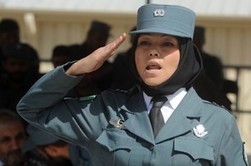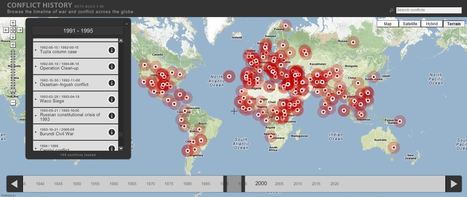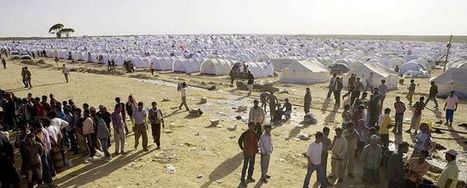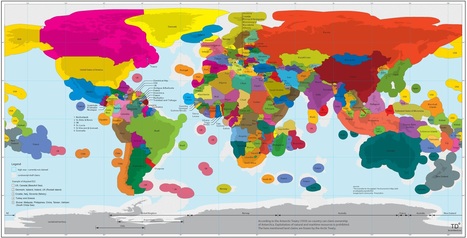Afghan troops are told that insulting behavior by Americans is an oversight, not a slight.
Cross-cultural interactions can be beautiful when immersed into a new cultural setting and the visitor learns to appreciate it. Unfortunately, it can often lead to clumsy missteps that are born out of ignorance of a new guiding set of cultural norms. Some missteps can lead to great laughter while others can be gravely insulting. The United States military seeks to train U.S. soldiers about Afghan customs, but they are trying a new tactic as well to minimize these issues. The U.S. military has prepared a cultural guide to teach the Afghan soldier that they work with about the curious customs that are part of social interaction in the United States but not considered offensive.
Tags: culture, war, unit 3 culture, conflict.



 Your new post is loading...
Your new post is loading...















I think the comparison to Vietnam at the start of the article shows just how little our culture learned last time. During the Kennedy administration, troops were given "guides" to inform them about the area as the article suggests. However, this "hearts and minds" strategy was a huge failure. So, what does the United States do? Send the army to a forghien country again with "recommended readings" and superfine "video games." As a result, some are so offended they are killing American fighters. While I might think this a bit extreme, the US also came in the country in an welcomed manner to begin with. Furthermore, the west (overall) consistently looks down upon Middle East culture. Belittling a culture will eventually anger the people. It is common sense that is consistently overlooked.
Something clearly needs to be done and while I think this strategy might not have immediate short term results, the military should continue on with the plan regardless. Currently, the tensions in the country are incredibly high. Clearly, what ever efforts the US put towards working with Afghanistan citizens came of as insincere. As such, people might just look at American's new attempt to work with them as a disingenuous effort. Furthermore, they might think calling it "ignorance," is just excusing Americans' actions. In the long term though, if done correctly, soldier's might actually learn to be more empathetic of the culture and more genuine so that the Afagni's might actually realize it all is just a "big misunderstanding" (there is a significant culture gap that will take time to learn) and not just laziness on the part of American's.
The mixing of two cultures can be both a blessing and a curse. The world is a better place when people of diverse cultures can have a mutual understanding of each other. However, in reality cultural roadblocks often disrupt progress. Often times the cultural misunderstandings are not that serious. However, in some cases those misunderstandings can lead to violence and death. NATO coalition troops have been killed by their Afghan counterparts over this issue of cultural misunderstanding. This current crises, has lead to a program that aims to teach the Afghans that the perceived slights are not done purposely. Hopefully this program will build better cultural understanding between the NATO allies and the Afghan army.